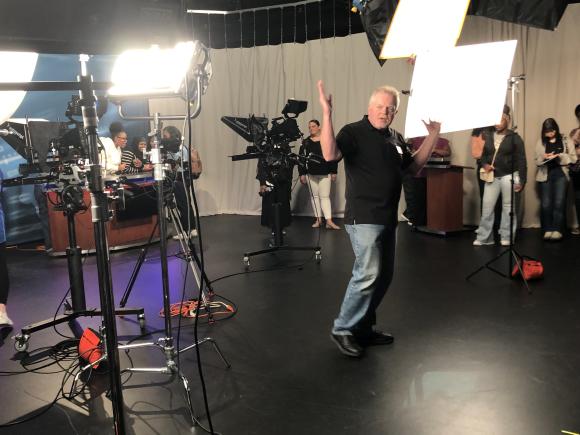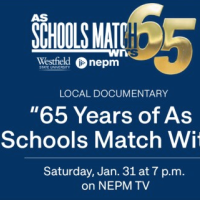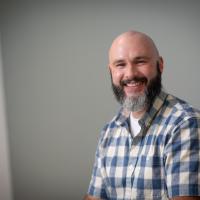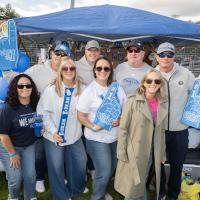
Inclement Weather Delay - Monday, Jan. 26, 2026
Due to inclement weather, WSU will be closed Monday, January 26, 2026. A campus parking ban will be in place beginning Saturday, January 24, at 6:00 p.m. See your WSU email for more info.
High School Students Visit Campus for STEAM Workshop

The campus of Westfield State University played host to a group of students on Saturday at an event showcasing the benefits of education and the many avenues that can provide pathways to life-long learning and successful careers.
An entire day of workshops and presentations delivered by WSU faculty, staff, and community members offered nearly 40 female Springfield Public School students an opportunity to hear from experts in the fields of STEAM: Science, Technology, Arts and Math.
The Intersection of Art & Science Workshop featured a panel of experts offering advice on career paths in STEAM, a tour of the nursing simulation lab at the Nettie M. Stevens Science and Innovation Center, a walk-through and presentation of the campus TV studio, radio station and podcast lab, a presentation on augmented reality from an art department professor and a tour of athletic equipment from a professor in the Department of Sports Medicine and Human Performance.
President Linda Thompson opened the workshop by introducing four panelists who took turns explaining the journeys that led to their professions. Dr. Akinyele Lovelace, a Westfield physician; Dr. Yedalis Ruiz, chief access and equity officer from the Caring Health Center; Brittany Rosario, a community health specialist at Baystate Health and Dr. Lamis Jarvinen, director of the Center of Undergraduate Research and Creative Activity at Westfield State all described influences and mentors that provided guidance in reaching their professions.
Lovelace described his journey guided by family members who understood and believed in his potential. While sports were a passion, he dreamed of playing professional basketball, he described an uncle intervened and set him on a realistic path.
“My uncle, who was a great basketball player said ‘your brain is probably your best asset. It’s probably not your basketball talent.’ ” Lovelace said around that time he developed an interest in science, and instead of going to basketball camp, he attended science camp. He was also guided by his pediatrician, who he described as a “pivotal” influence. Lovelace said: “I got to the point where, maybe I want to do this doctor thing. Because in our household, in our family, we were always taught that your community needs you, and your community needs you to be an asset.”
Lovelace said he got involved volunteering at a hospital. “I carried blood. I carried mail. I wore the red coat and enjoyed it. So, I looked for schools that would put me on the right path to secure my goal.”
He concluded with the advice: “Always value your greatness.”

During a tour of the communication department, Mark St. Jean, coordinator of video production and television operations showed students the television studio explaining the intricate, behind-the-scenes planning that goes into a production. He used President Thompson’s “Community Conversations” series as an example. “It took days and days of planning and production work to develop a one-hour program,” he said. St. Jean, also executive producer of “As Schools Match Wits,” explained the complicated process in creating an episode of the popular quiz show.
A tour of the Nettie Stevens Science and Innovation center involved hands-on experience in the nursing simulation lab from Dr. Marcia Scanlon, chair of the Nursing Department. There also was a tour of athletic equipment from Dr. Paul Cacolice, associate professor in the Department of Sports Medicine and Human Performance in the Woodward Center, presenting some of the opportunities in sports medicine and athletic training.
The day concluded with an example of how to use augmented reality by George Ramirez, assistant professor in the Art Department. “Our society is beginning a new technological evolution with the introduction of extended realties and artificial intelligence. As Virtual Reality and Augmented Reality begin to integrate themselves into our everyday lives, Westfield State can become an institution that embraces this technology and trains their students to work in these digital spaces. Though virtual reality can be commonly associated with gaming, VR spaces can be created for use in teaching, healthcare, art, music, and many other disciplines,” he said.


